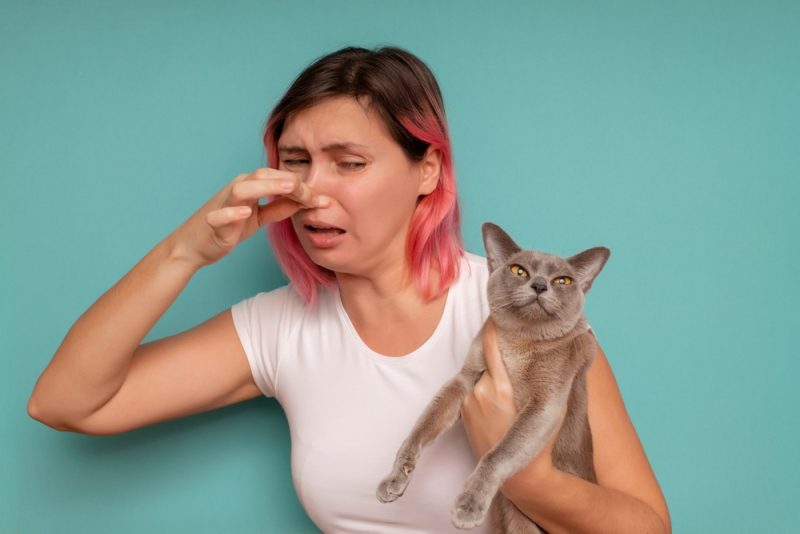
How to Prevent It
Have you ever noticed that your cat’s farts seem to smell like rotten eggs? Is there a way to prevent this unpleasant scent? That rotten egg odor is primarily due to sulfur compounds produced in the digestive process. When cats eat certain foods, especially those rich in fiber or specific types of carbohydrates, their digestion can lead to the production of gases that have a uniquely smelly odor.
Causes of Smelly Farts in Cats
Cats can have varying amounts of gas accumulate in their digestive systems, and certain factors can play a role in the production of odorous farts. Cats with sensitive digestive systems or food allergies can produce particularly stinky gas. Some cats may have difficulty digesting specific ingredients, leading to gastrointestinal distress and the production of gas.
Since cats are obligate carnivores, their digestive system is designed to efficiently process animal protein. So, dairy products, high amounts of carbohydrates or fiber, or low-quality ingredients can cause excess gas and smelly odors.
Many adult cats are lactose intolerant, meaning they have difficulty digesting lactose-containing foods properly. As a result, you may notice the unpleasant scent of rotten eggs. Sudden changes in your cat’s diet can lead to digestive upset, which can produce smelly farts. Eating spoiled food can also lead to a more prominent sulfur smell in their flatulence.
The microbes living in your cat’s intestinal system can impact the production of gases. A healthy microbiome can digest foods efficiently, thus producing less gas and pungent odor. Dysbiosis, or an imbalance of microbiomes, can produce smellier gas as a by-product of digestion, which is why you may notice a smell similar to that of rotten eggs. Medical conditions, such as infections, inflammatory bowel disease, or intestinal parasites, can upset normal digestion, leading to foul-smelling farts.
Other factors can influence flatulence, such as how fast your cat eats. Kitties that quickly gobble down their food can swallow air, which may lead to an excess of gas in their gastrointestinal tract.
How to Prevent Your Cat From Having Smelly Farts
If your cat’s farts continue to be particularly smelly or occur in addition to vomiting or diarrhea, a checkup with your veterinarian may be worthwhile in order to rule out any underlying medical conditions or dietary indiscretions. It can be particularly useful to help you manage your cat’s diet and ensure a healthy digestive tract.
Dietary changes to include more high-quality protein depending on your cat’s age, health, and lifestyle can reduce excessive gas. All new diets should be slowly transitioned over a period of 7 to 10 days to prevent digestive upset. The addition of a species-specific probiotic can contribute to a healthy microbiome. Serving smaller, more frequent meals daily can also help digestion more than a single large meal.
Play and exercise can help your cat’s digestive system move along more efficiently. Aim for two 15-minute sessions per day.
Conclusion
Farts with foul smells resembling rotten eggs in cats can be attributed to various factors, such as their dietary choices, food intolerances or allergies, the condition of their microbiome, and their eating habits. Once you understand these factors, you can take appropriate steps to reduce stinky and potentially embarrassing odors from your cat.
Featured Image Credit: Stanislaw Mikulski, Shutterstock